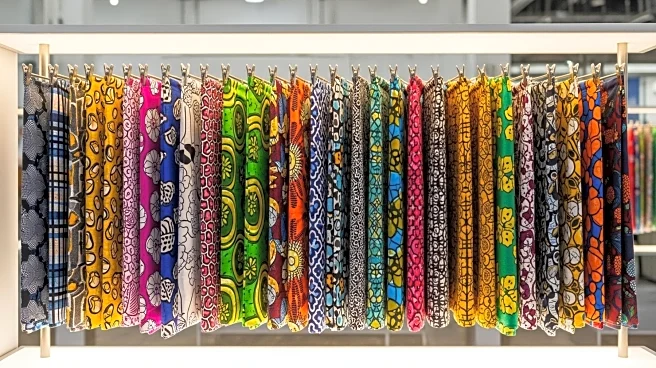What's Happening?
The African Growth and Opportunity Act (AGOA), a key trade agreement between the U.S. and sub-Saharan Africa, is facing uncertainty following recent political decisions in Washington. AGOA provides preferential access to the U.S. market for nearly 7,000 products, including textiles and apparel, contingent on meeting specific political and economic criteria. The potential end or reduction of AGOA could significantly impact African countries that rely on this agreement for industrial development and job creation. The White House has proposed a one-year extension, but long-term uncertainties remain.
Why It's Important?
AGOA has been instrumental in fostering economic growth and development in several African countries by providing access to the U.S. market. The textile and apparel sectors, in particular, have benefited from this agreement, creating jobs and generating foreign currency. The potential changes to AGOA could lead to increased tariffs, reduced competitiveness, and job losses in the African textile industry. This situation underscores the need for African countries to diversify their trade partnerships and enhance their competitiveness to mitigate the impact of any changes to AGOA.
What's Next?
African countries may need to explore alternative strategies to adapt to the potential changes in AGOA. This could include strengthening local value chains, accelerating regional integration through the African Continental Free Trade Area, and negotiating bilateral trade agreements. Additionally, investments in modernizing the textile industry and improving productivity could help offset any potential tariff shocks. The situation presents both challenges and opportunities for African countries to transform their industrial sectors and reduce dependency on foreign trade agreements.











